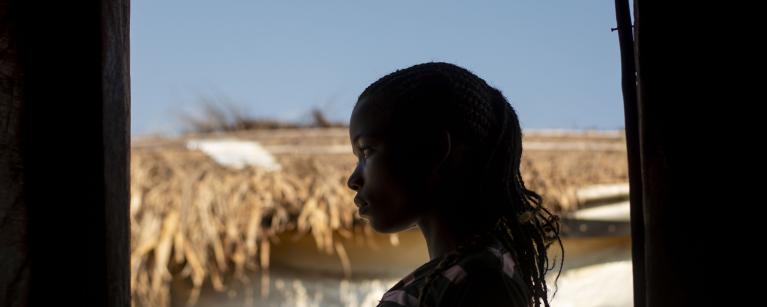In the Democratic Republic of Congo (DRC), an extended conflict has displaced millions of people in the eastern part of the country, forcing them to leave their homes and seek refuge in makeshift camps. Mrs. Fati N’zi-Hassane, Oxfam's Director for Africa, visited displaced women at the Rusayo site in North Kivu Province.
The Challenge of Menstrual Products for Displaced People
Among the challenges faced by these women and girls, managing menstruation is a prominent issue. In a precarious environment with very limited access to water, hygiene, and sanitation, obtaining suitable menstrual products often becomes an arduous task.
Mrs. Fati N’zi-Hassane shares: "When we arrive at these sites, we find that many women and girls lack access to quality menstrual products. They have to make do with makeshift solutions, which undermines their dignity and well-being. This is still a largely taboo topic, but it directly impacts their health and social inclusion. These obstacles are in addition to the numerous gender-based violences they face daily."
Indeed, the lack of appropriate menstrual products often leads these women and girls to isolate themselves during their periods, preventing them from fully participating in community activities and working to support their families. This isolation can also affect their education, employability, and ultimately, their autonomy.
A 25-year-old woman, who prefers to remain anonymous, recounts: "In the past, I had to make do with scraps of fabric I found here and there. I felt extremely uncomfortable and often experienced great embarrassment and shame. Before Oxfam came to this site, during my periods, I had no water neither to wash nor to clean the fabrics. Frequently, I had to hide these rags in a place where, due to the lack of water, they would sometimes stink. Without water to wash, I felt immense pain and discomfort and struggled to approach others, isolating myself during this time. Since Oxfam set up water infrastructure on this site, I am relieved."
Oxfam's Efforts for Better Menstrual Management
In response to this issue, Oxfam has implemented specific programs aimed at improving access to menstrual products for displaced women. The organization works closely with local communities to understand their needs and preferences regarding menstrual products.
Mrs. Fati N’Zi-Hassane explains, "We offer a range of solutions, from conventional sanitary pads to reusable menstrual underwear. We also train women and girls on how to use and maintain these products to ensure their effective management over time."
The goal is to enable these women and girls to experience their menstruation with dignity, without having to forgo their daily activities. Oxfam provides access to water and sanitation infrastructure with funding support from the U.S. Government's Bureau for Humanitarian Assistance (BHA). This also includes raising community awareness about the importance of menstrual health and eradicating the taboos that are still often associated with it.
A Call to Action
As Mrs. Fati N’zi-Hassane emphasizes, "Receiving support from Oxfam or other organizations in this area can really make a difference, especially at a time when one feels at their lowest. Stories like these, testimonials like these, give us the courage to continue our work and call for more mobilization in support of those in need."
Indeed, the needs remain immense and the challenges numerous. That is why Oxfam is calling for everyone’s mobilization to help more women and girls experience their menstruation with dignity, wherever they are.
As N’Zi-Hassan so aptly put it: "Changing the world starts with changing the life of one person." This is what Oxfam strives for, day after day, alongside the most vulnerable communities.
